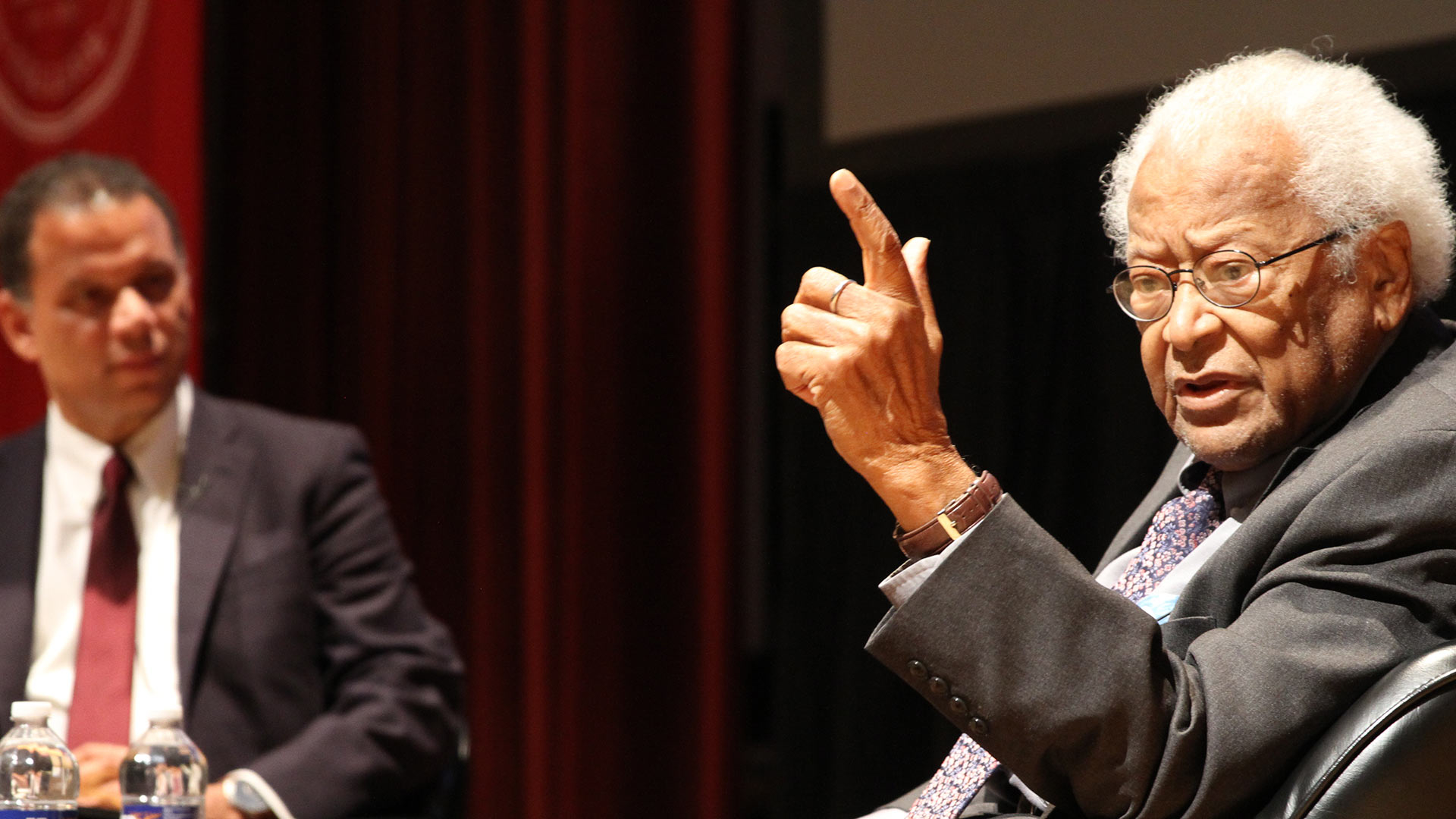
The Rev. James Lawson told a Dana Auditorium audience Wednesday night that the United States has become the most violent society in the world. He pointed to statistics from the FBI’s Uniform Crime Reports, but also referenced his home state of California as proof.
After the 2012 shootings in Newtown, Conn., Congress defined “mass killings” to mean “three or more killings in a single incident.” Under that definition 28 people died and 14 more were injured in California last month. In North Carolina this year, eight people have died and one was injured in mass shootings.
“We are now the most violent society known in the human race,” says James, a pioneering civil rights leader who helped organize nonviolent protests in Greensboro and across the South during the 1960s. ”No other nation in the world coming out of Europe has any such thing going on. We don’t read about it because it’s so commonplace that unless that happens in Greensboro, it will not be in the paper and even then it will not be published in Los Angeles.”
His remarks – and ensuing call for standing up against such violence – came during a conversation with President Kyle Farmbry in the concluding event of the inaugural Civil Rights Speaker Series presented by the International Civil Rights Center and Museum.
James says it’s imperative that U.S. citizens move to a life of nonviolence. “Just as we try to have love as the major powerful energy for living in a family, in a congregation, in a fraternity or sorority, we must begin to insist that love become an experimental way for us to discover the powers it can offer us for life,” he says.
He says the nation has become too weaponized. “We must say no to our military veterans and to our military bases. We must say no to the gun industry,” he says. “The gun industry and the military bases are not the causes of U.S. policies. It’s greed and power.”
James says one of the best strategies for reducing gun violence is to vote. “”It’s the most powerful weapon we have to affect change,” he says. “What’s sad is that not nearly enough of us use that power.”
During the conversation and an audience Q&A following it, he spoke about his work from the 1940s to 1970s with Dr. Martin Luther King Jr. and Congressman John Lewis as well as Ella Baker and Fanny Lou Hamer, with whom he helped organize the Student Nonviolent Coordinating Committee coming out of the student-led sit-ins in Greensboro.

